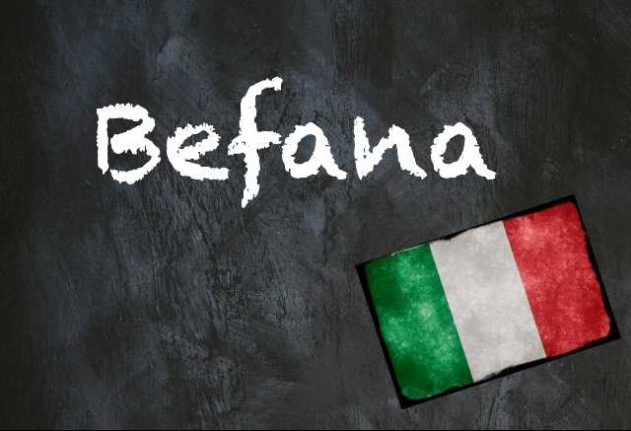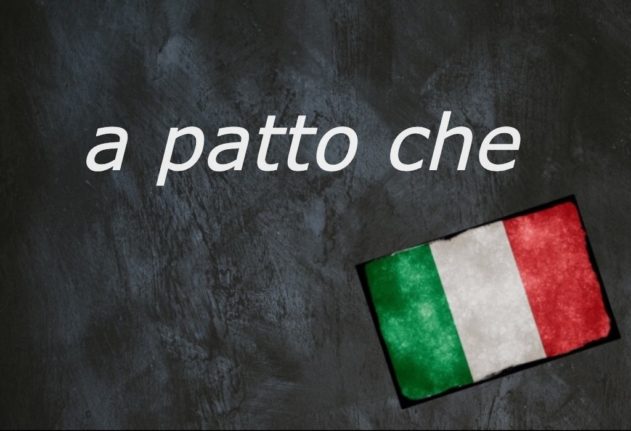Today’s word is actually a beloved character: ‘La Befana’ is a good witch who delivers presents to Italian children on the eve of Epiphany (Epifania) on January 6th – the date when the Christmas period officially ends in Italy.
Tradition holds that the Three Wise Men passed La Befana’s home on their way to search for the baby Jesus and invited her to join them, but she declined as she was too busy with housework.
She regretted her decision and later decided to go and look for the Christ, but never found him. To this day she’s still flying around on her broomstick searching, distributing sweets and presents to children whose homes she passes.
È ora di andare a letto, poi arriverà La Befana.
It’s time to go to bed now, then La Befana will come.
Traditionally, Italian children open their presents on Epiphany: a national holiday and the date when, according to Catholic tradition, the Wise Men reached the stable with Mary, Joseph, baby Jesus and the shepherds.
These days many parts of the country have fallen more in line with international customs, with children hanging up their stockings on Christmas Eve and receiving gifts from ‘Babbo Natale’ (Santa Claus) on Christmas Day.
However in some areas children still hang up calze della befana (La Befana stockings) on Epiphany Eve. The lucky ones do both, receiving two sets of Christmas presents.
You’ll also sometimes hear January 6th referred to as il giorno della Befana (‘the day of the Befana’) or simply la Befana rather than Epifania in Italian.
Dove andiamo a festeggiare la Befana quest’anno?
Where shall we go to celebrate Epiphany this year?

While it’s usually used as a proper noun, the word befana can mean an old hag or crone – just like in English, it’s a derogatory term you don’t want to go throwing around lightly.
The southern city of Bari has its own Befana legend; as well as the good Befana, at one time the evil witch Befanì roamed around on the same night sewing death and dischord.
According to the story, the Emir Mufarrag, the Turkish warrior who at the time governed the city, decided to challenge Befanì to a duel.
She chopped his head clean off his neck, and it later reappeared carved in stone above a doorway in the city, where some version of it remains to this day.
In some Tuscan villages, befani are a different thing entirely; it’s the name given to a group of locals who dress up as shepherds or peasants and on Epiphany night wander the streets, knocking on doors and singing traditional songs and distributing sweets and oranges in exchange for money.
If Christmas doesn’t go how you imagined this year or Santa doesn’t give you the presents you hoped for, don’t despair: there’s always La Befana – the person and the day – right around the corner.



 Please whitelist us to continue reading.
Please whitelist us to continue reading.
Member comments